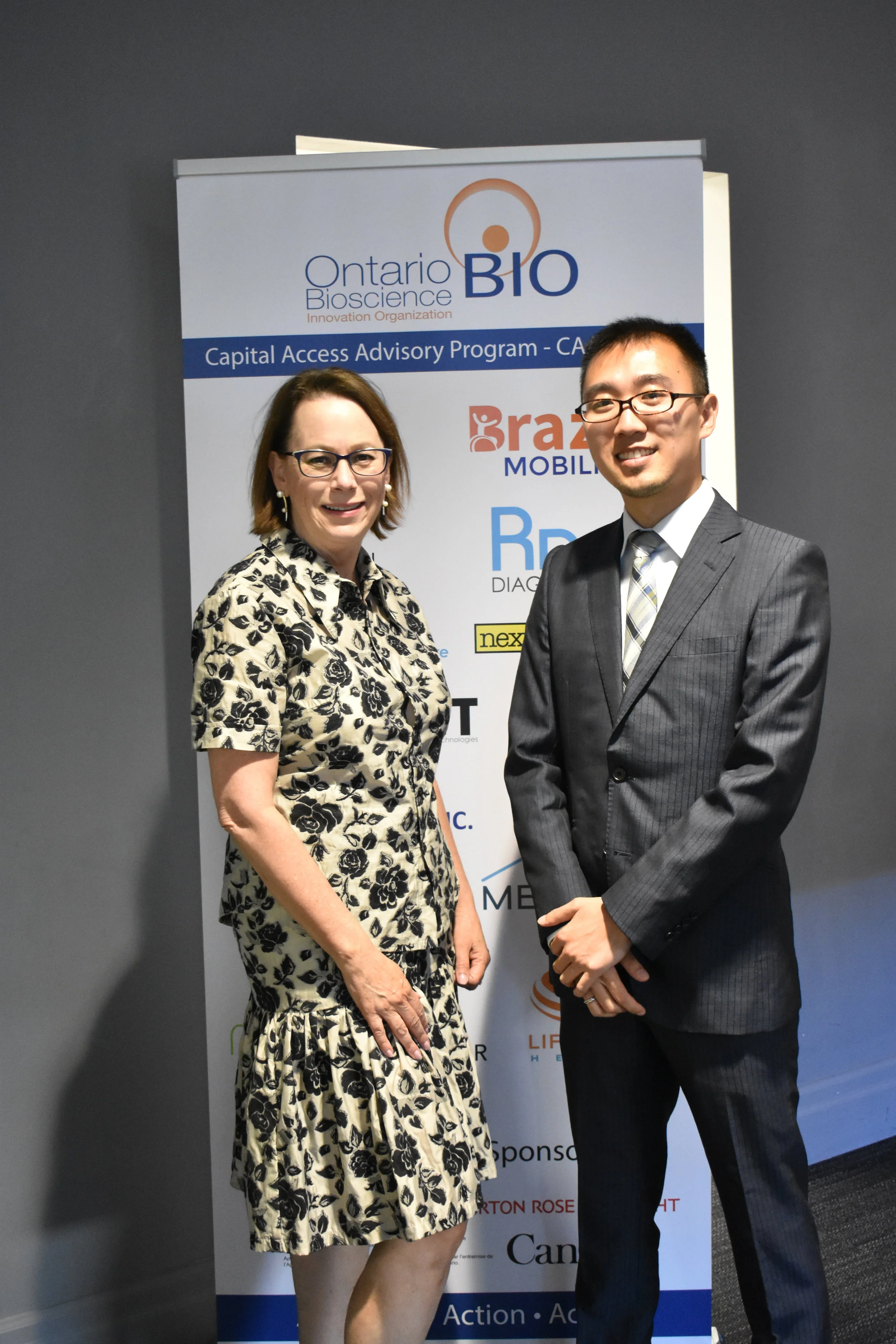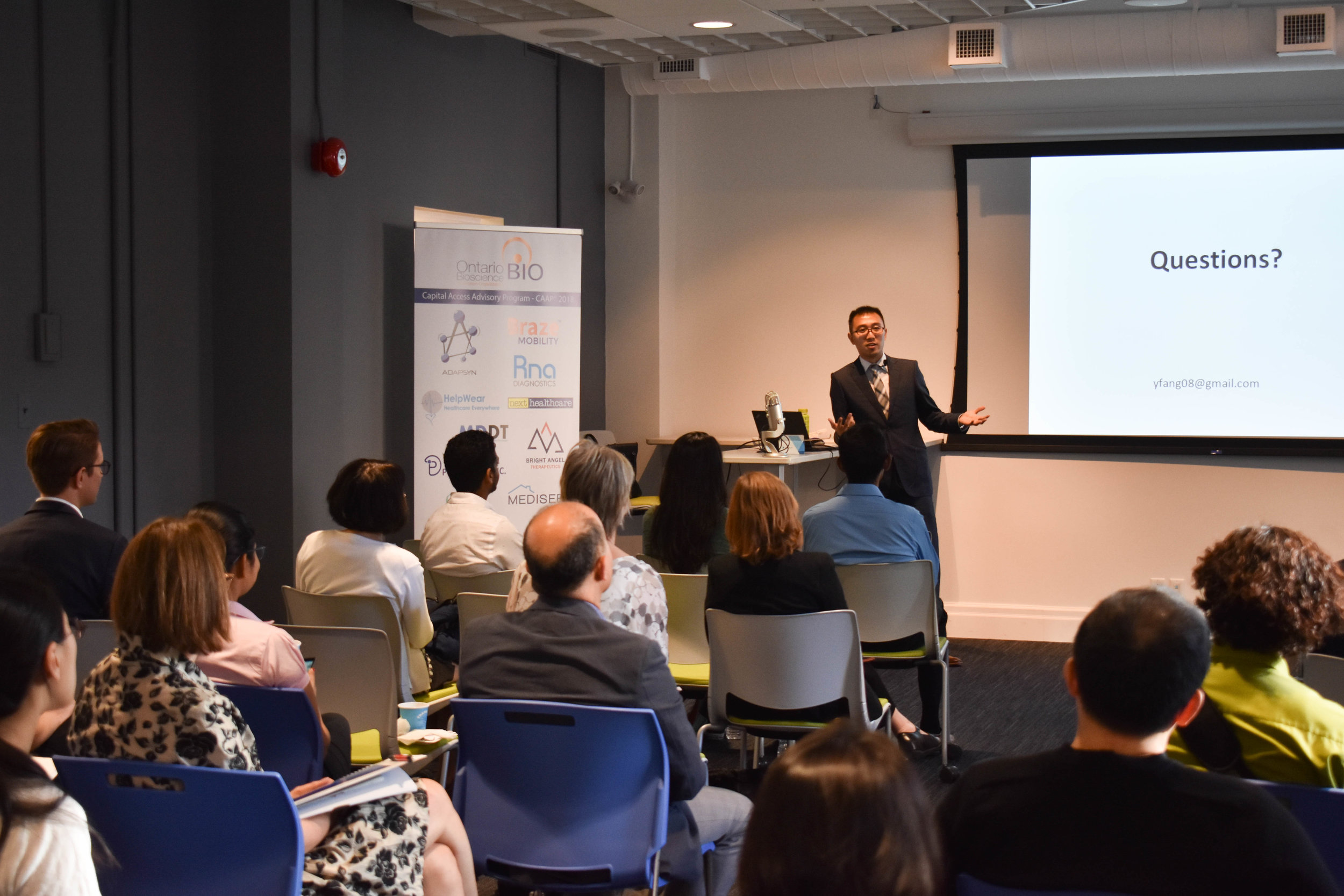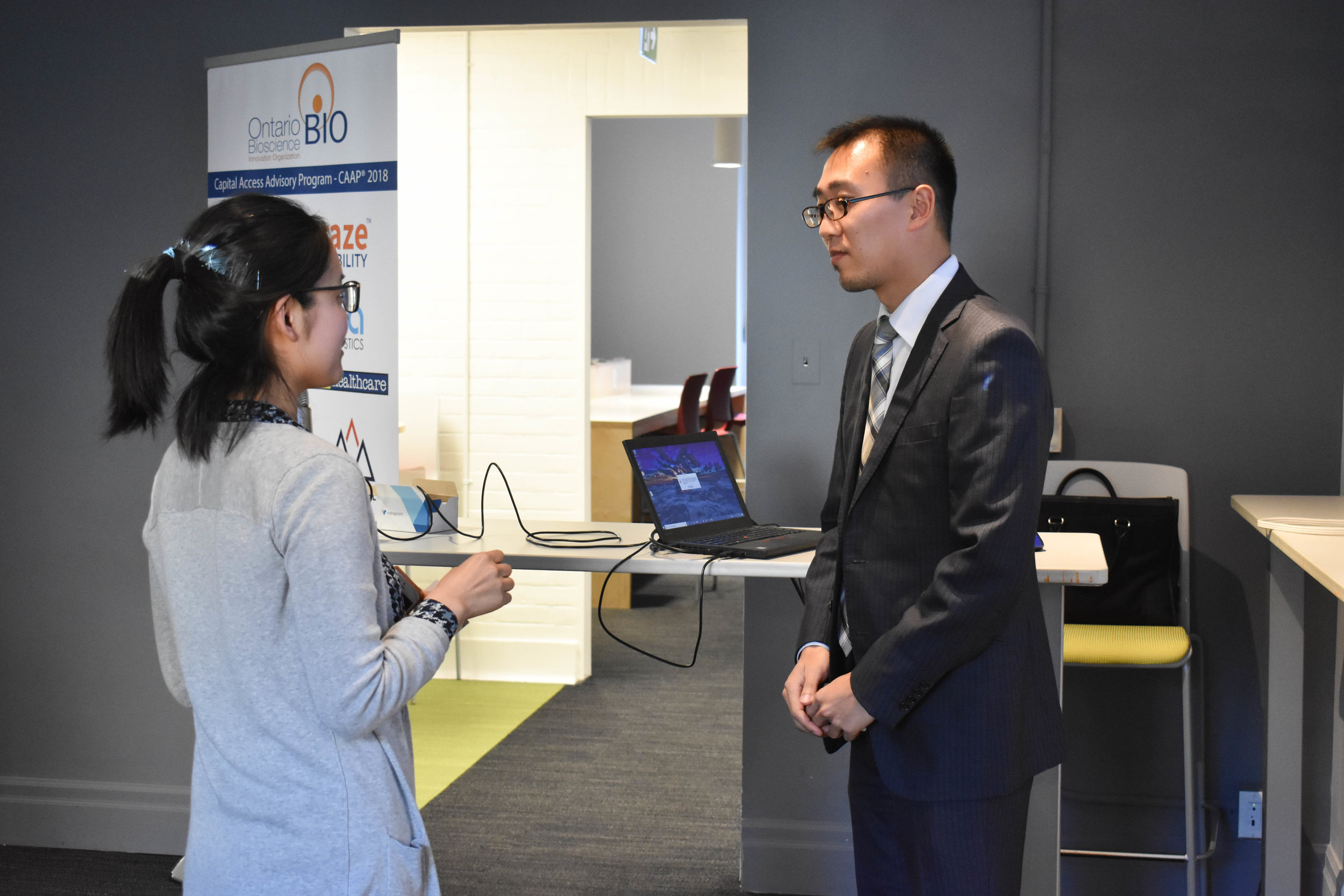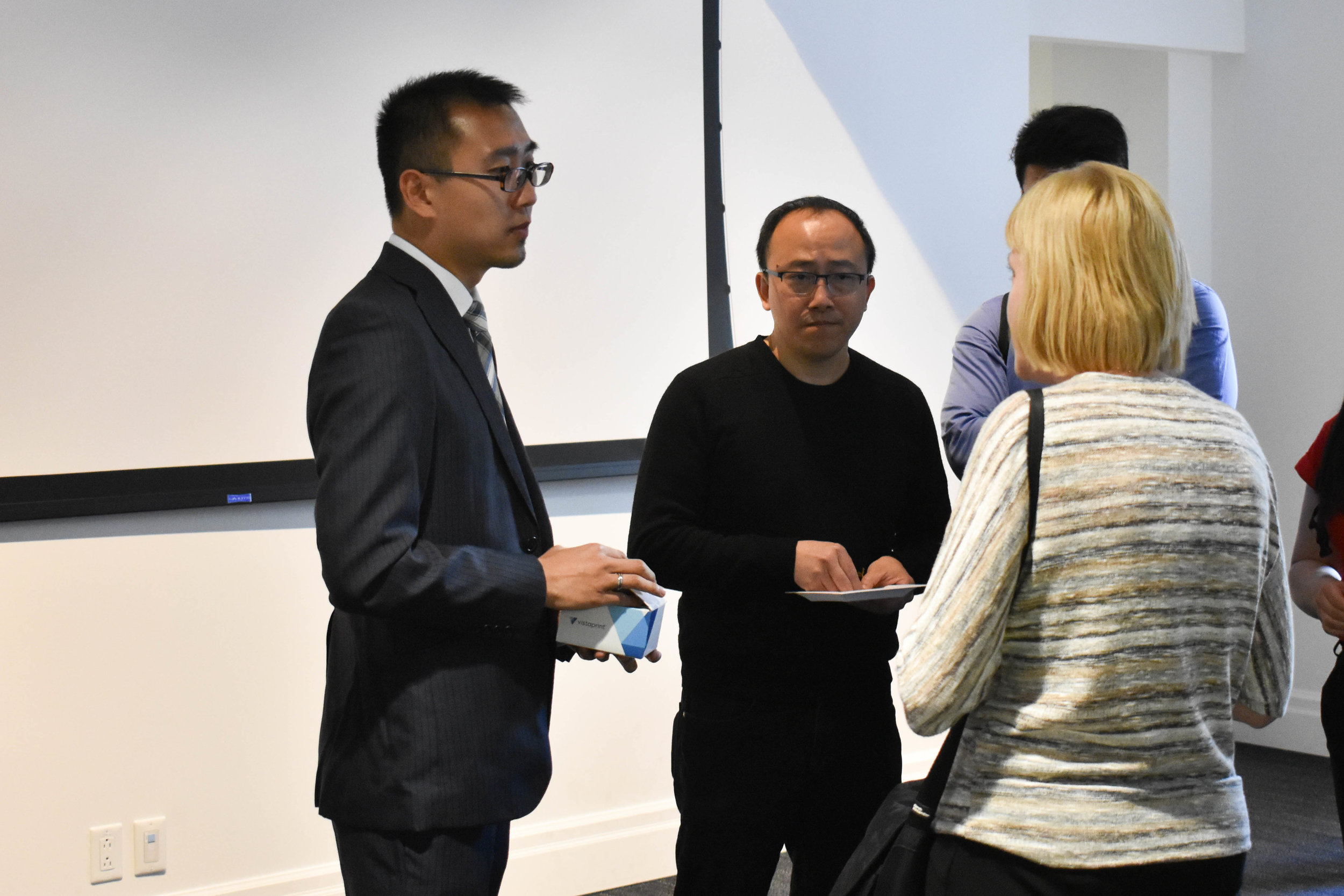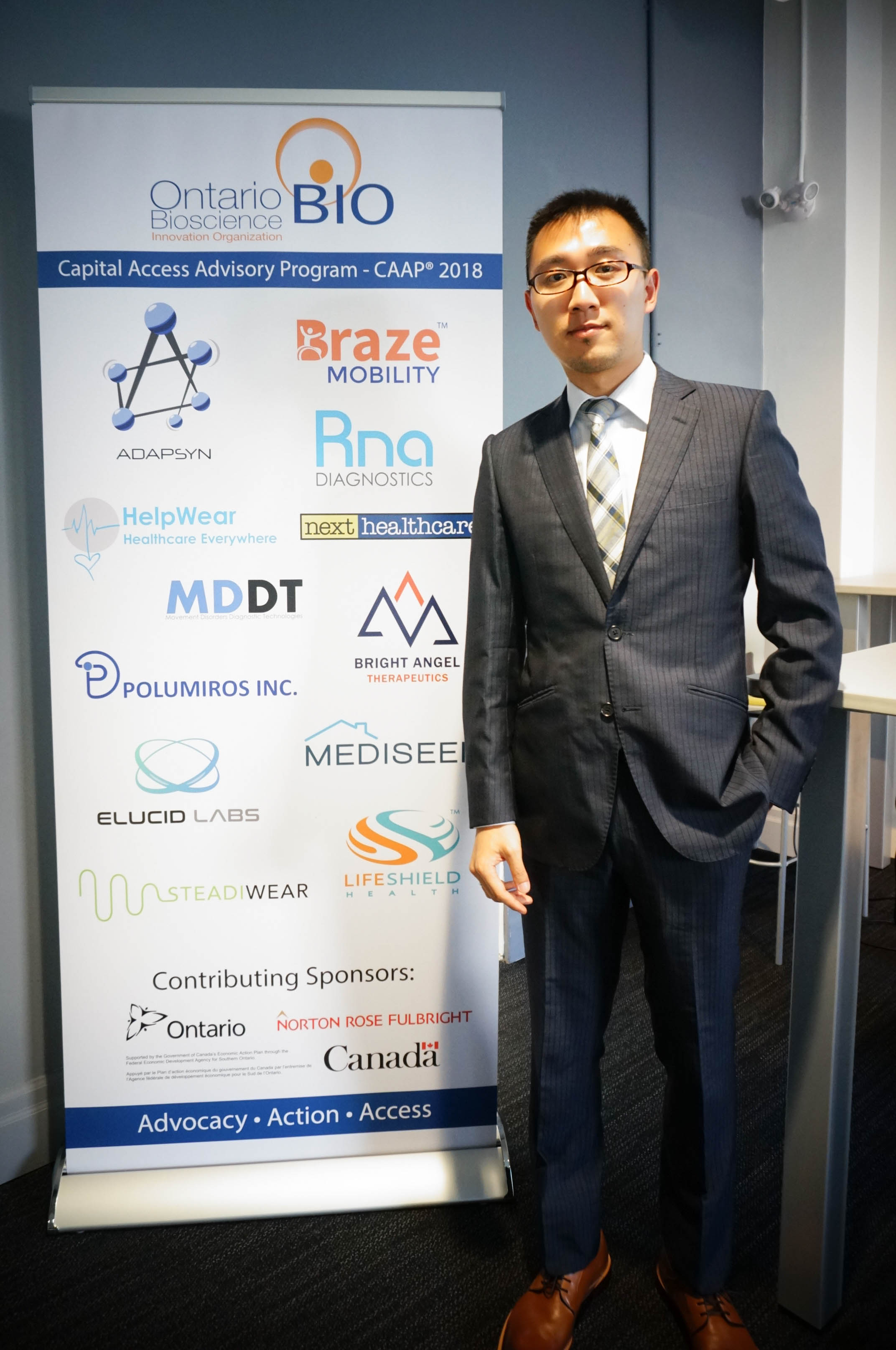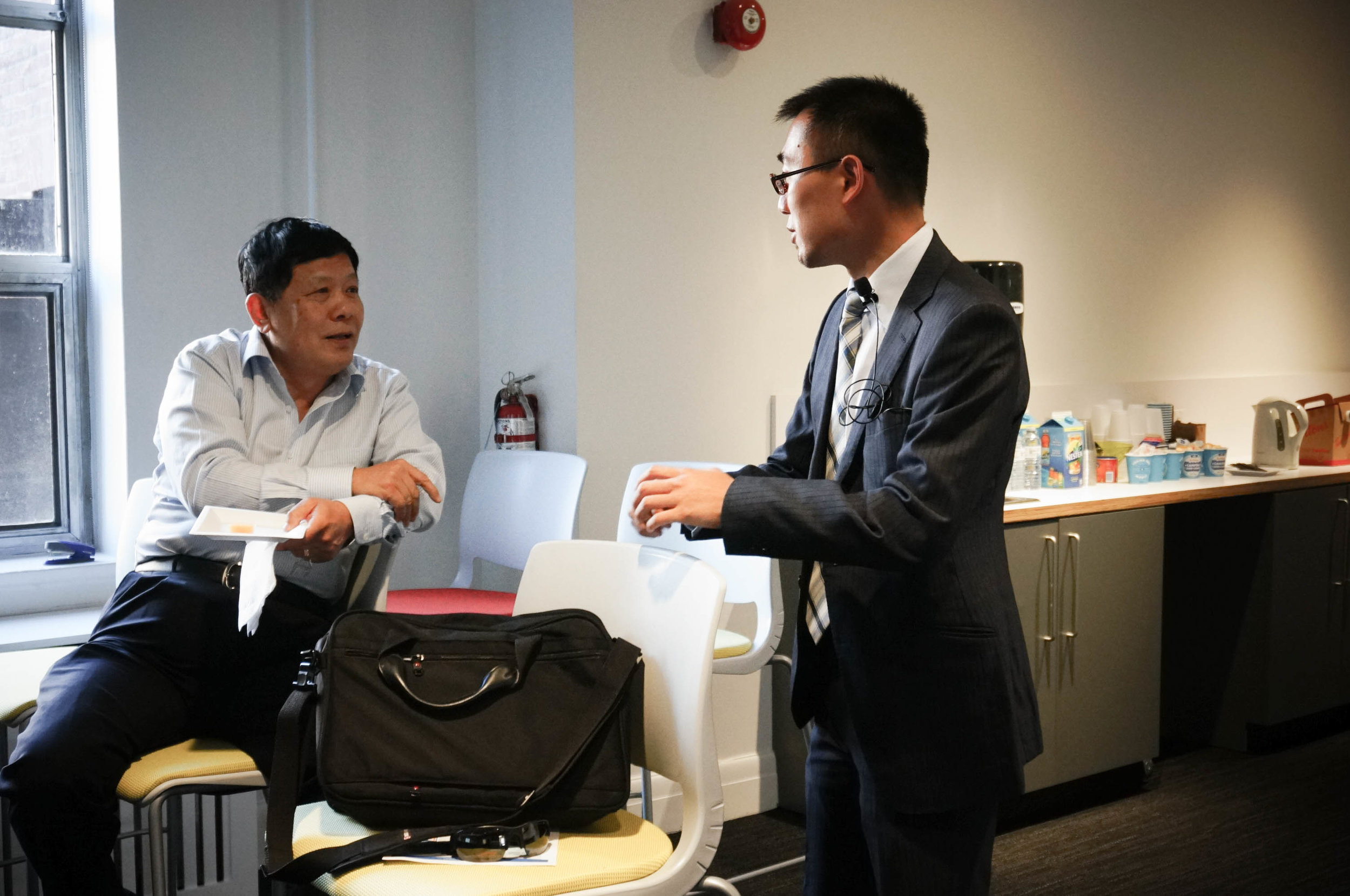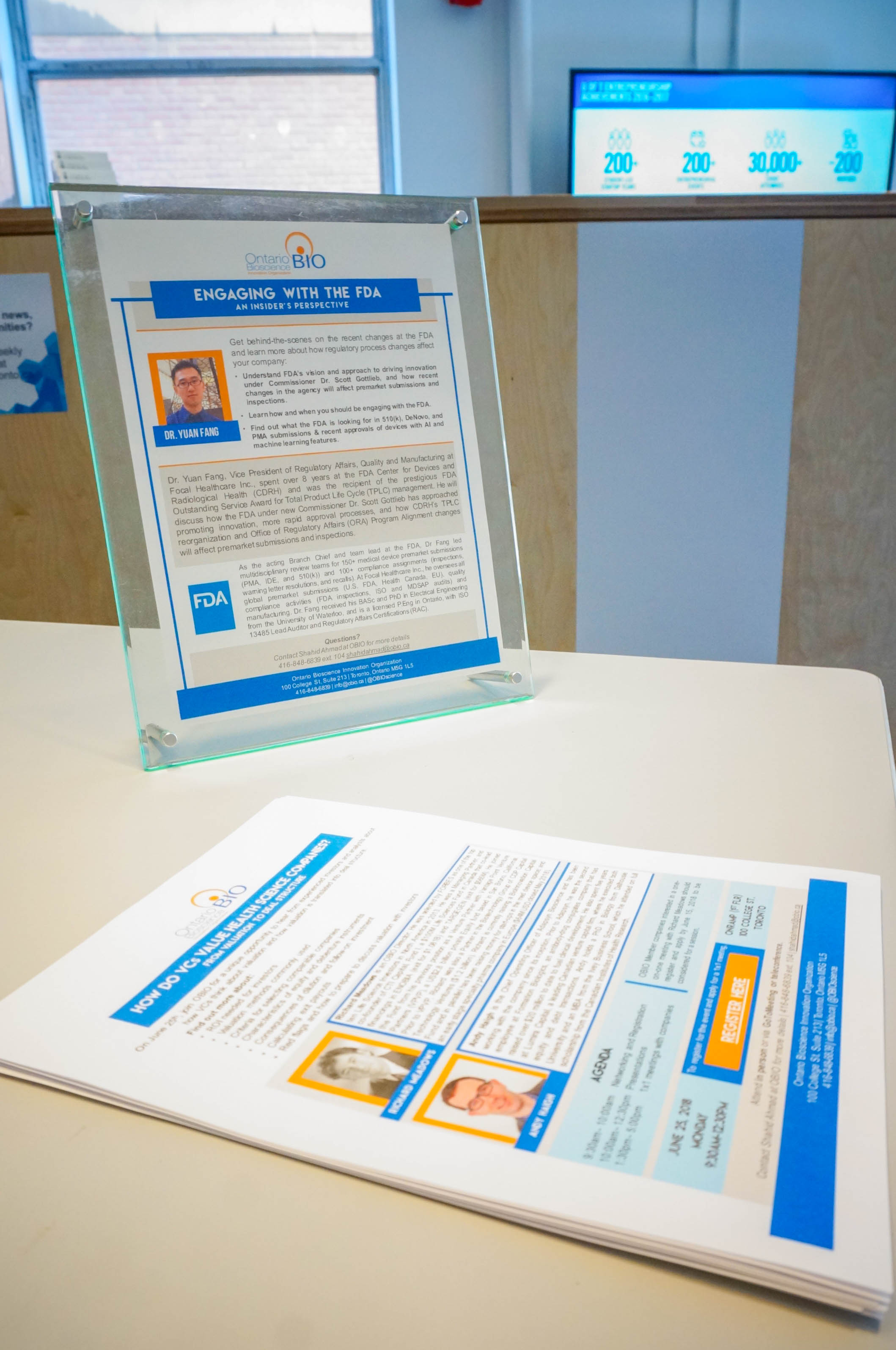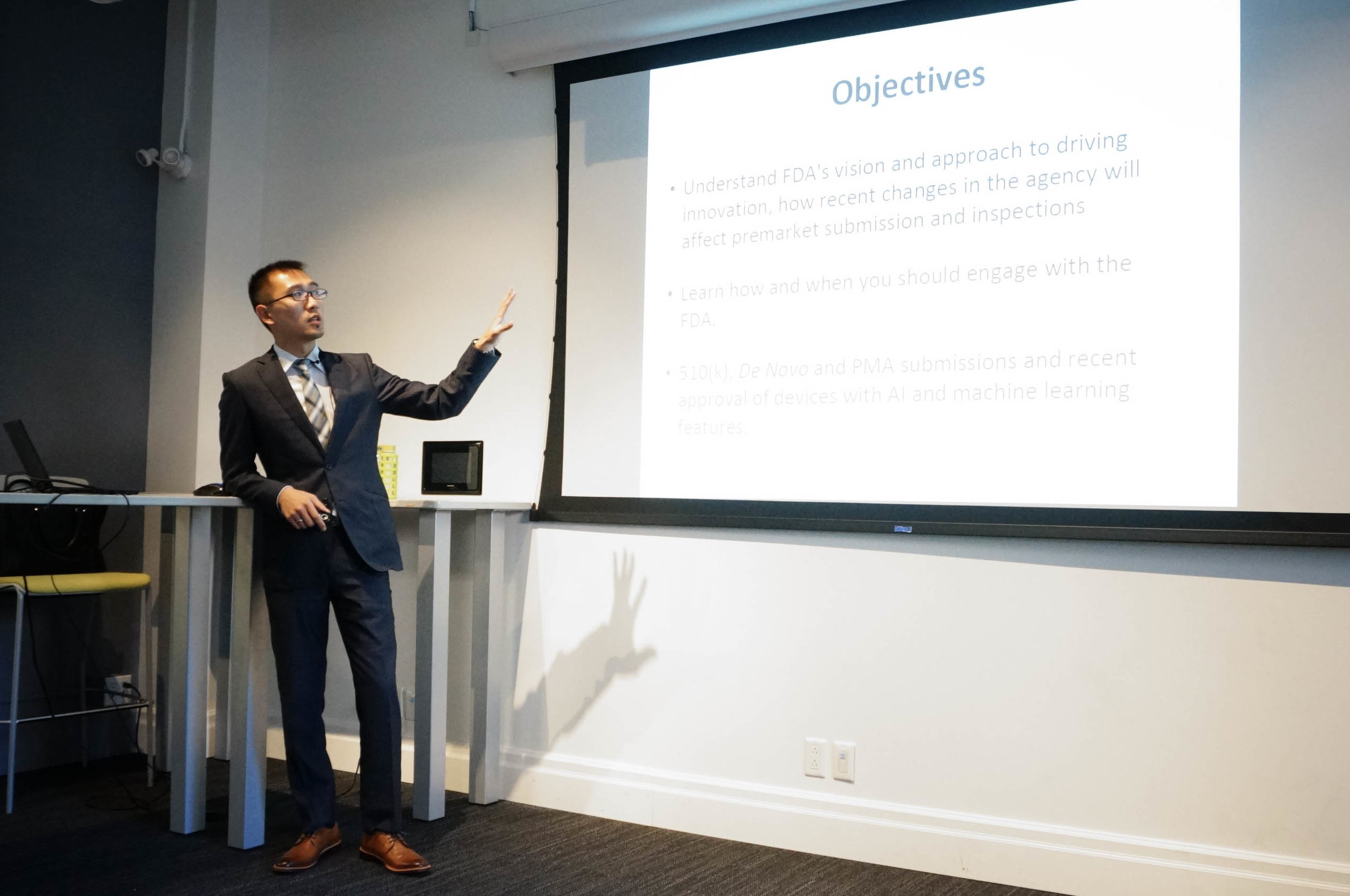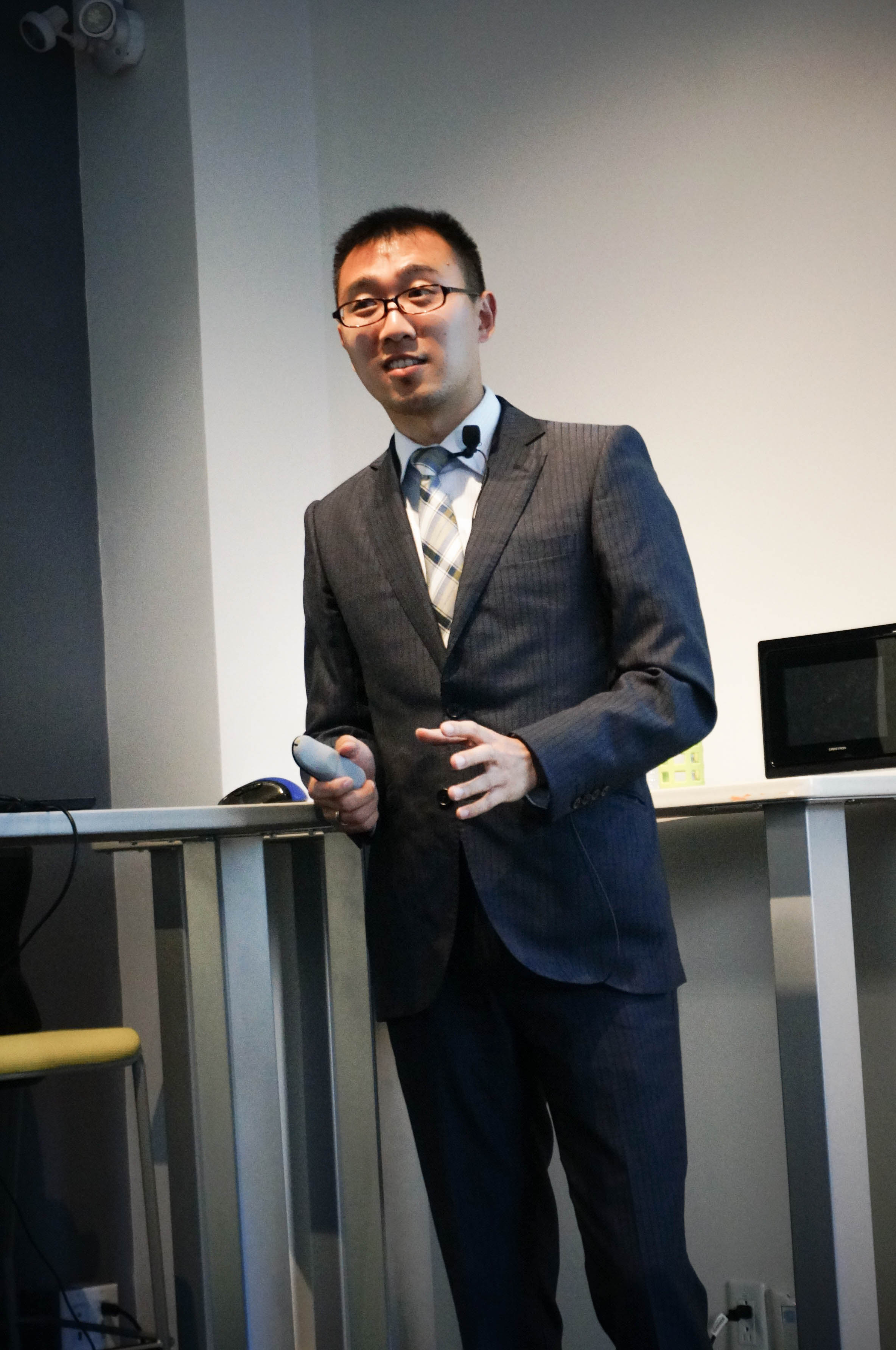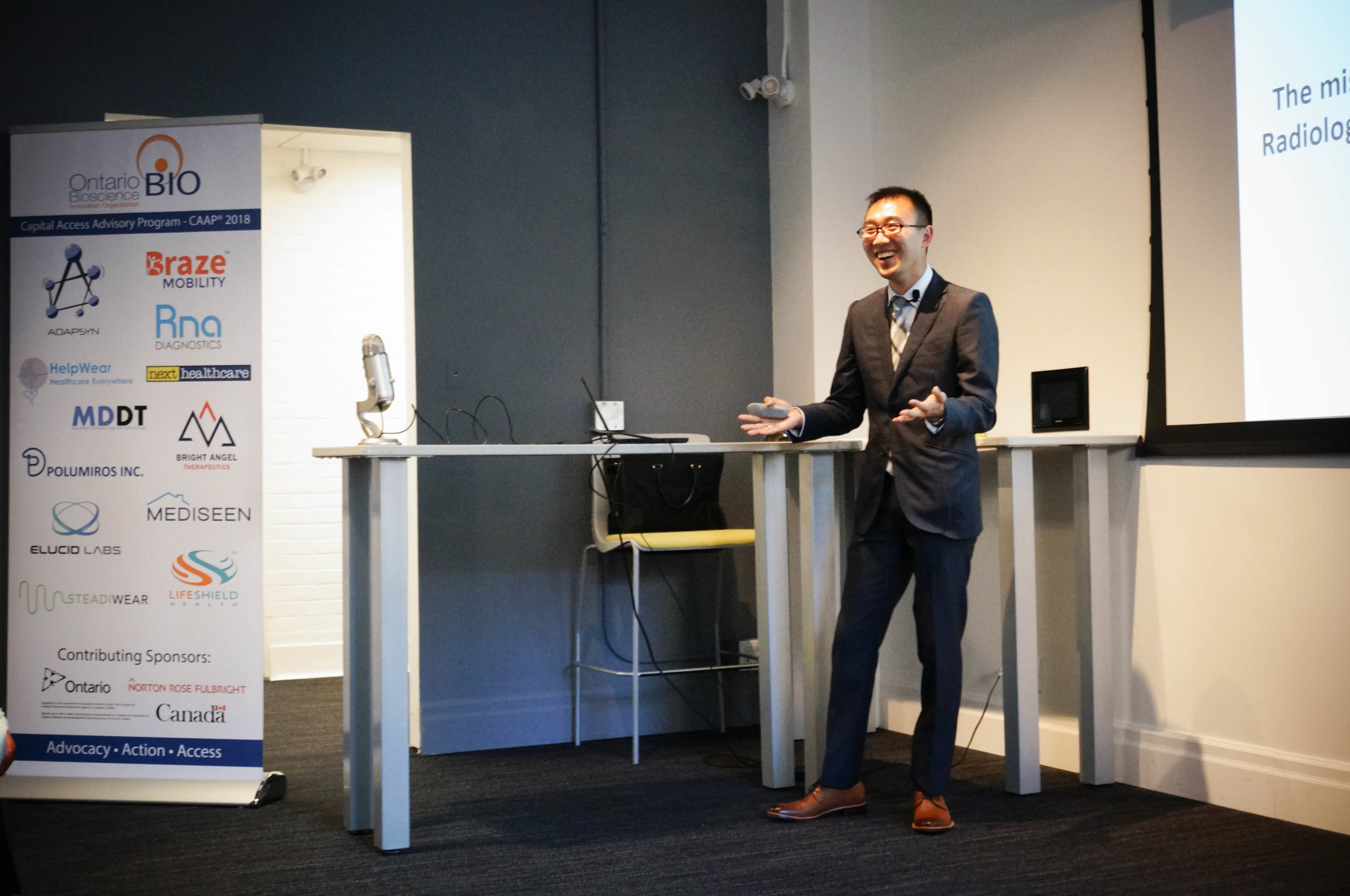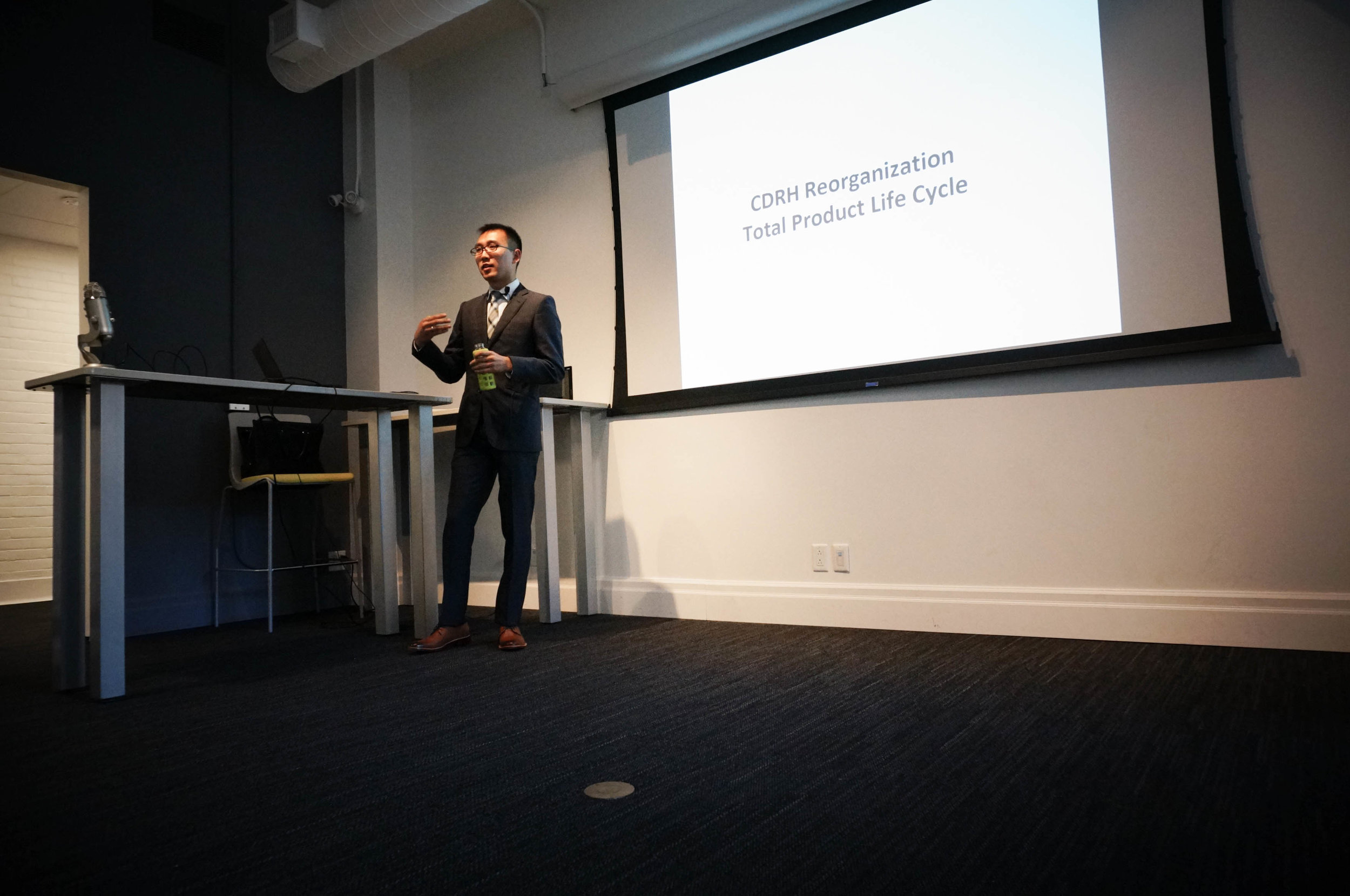By: Sean Peel, OBIO, Director of Program Development
On June 14th, OBIO hosted Dr. Yuan Fang (VP Regulatory Affairs, Quality and Manufacturing; Focal Healthcare Inc.) who spoke about his perspective on the recent changes at the U.S. Food and Drug Administration (FDA). Dr. Yuan spent over 8 years at the FDA Center for Devices and Radiological Health (CDRH), reaching the position of acting Branch Chief. During his talk, Dr. Yuan highlighted six important considerations when dealing with the FDA.
First, the mission of the FDA is not merely to protect public health, but also to promote it by helping speed up innovation. With the recent requirement of the 21st Century Cures Act that the FDA consider the patient perspective, Dr. Yuan indicated that the FDA was placing a stronger emphasis on the benefit portion of the risk-benefit equation when considering regulatory submissions. Further, he noted that the “least burdensome” provisions of the Act provided medical device companies with opportunities to present a case for reduced testing of their devices before approval, when supported with appropriate evidence.
Next, he also stressed the importance of being certified as a small business in advance of filing any regulatory requirements. It could save companies literally tens, if not hundreds, of thousands of US dollars per filing. There were some discussions around the challenges of obtaining the required documentation from the CRA to support the Small Business Certification application, which emphasized the need to start the process well in advance of submitting any filings with the FDA.
Dr. Yuan also highlighted the impact of the reorganization of the Office of Regulatory Affairs (ORA) from a geographic to a programmatic model. The ORA is the office that is responsible for the onsite inspection of your company. This change will allow ORA investigators to focus on specific areas, which should lead to increased consistency in inspections. This led to a question about whether you would get the same inspector on repeat inspections. Yuan noted that this would not be the case as the FDA preferred having a fresh set of eyes doing the inspections and also due to the challenges with arranging the inspectors’ schedule. He also reminded the audience that investigators were people too, who typically would spend 3 to 4 weeks a month on inspections for 10 months a year.
For the remaining three of the six important considerations that Dr. Yuan covered, including the “Five 510(k) How To’s” and how to prepare for an FDA inspection, the complete recorded presentation will be posted shortly on the OBIO Members Portal. Click here.
For more information on how to become an OBIO Member, please click here.
